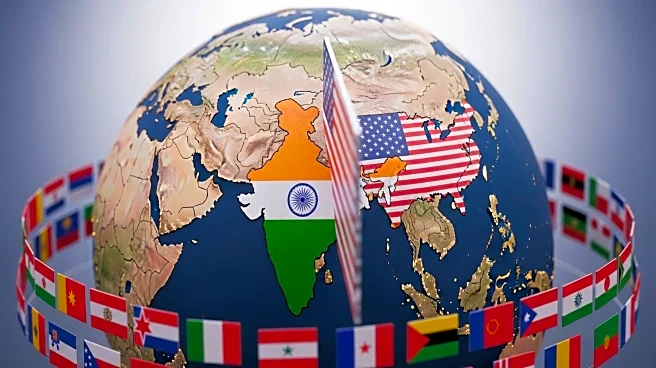What's Happening?
President Trump has imposed steep tariffs on Indian goods as a response to India's continued purchase of Russian oil. This development comes during the Shanghai Cooperation Organisation (SCO) summit in China, attended by over 20 world leaders, including Russian President Vladimir Putin and Indian Prime Minister Narendra Modi. The summit, held in Tianjin, is overshadowed by trade tensions with the United States. Modi and Chinese President Xi Jinping have pledged to deepen trust and cooperation between their countries, despite historical tensions, including a long-standing border dispute. Modi announced the resumption of flights between India and China, which had been suspended since 2020 due to deadly clashes on their shared Himalayan border.
Why It's Important?
The tariffs imposed by President Trump highlight the growing trade tensions between the United States and India, potentially affecting bilateral relations and economic exchanges. As India moves closer to China, this shift could alter geopolitical dynamics in Asia, impacting U.S. influence in the region. The SCO summit serves as a platform for member states to discuss shared interests and grievances, potentially leading to stronger alliances that counter Western influence. The resumption of flights between India and China signifies a thawing of relations, which could lead to increased economic and diplomatic cooperation between the two populous nations.
What's Next?
The ongoing trade tensions may lead to further diplomatic negotiations between the United States and India. The SCO summit could result in new agreements or partnerships among member states, potentially challenging U.S. policies in the region. As India and China work towards improving their relationship, there may be increased collaboration in areas such as trade, technology, and security. The geopolitical landscape in Asia could shift, with potential implications for global trade and diplomatic relations.









